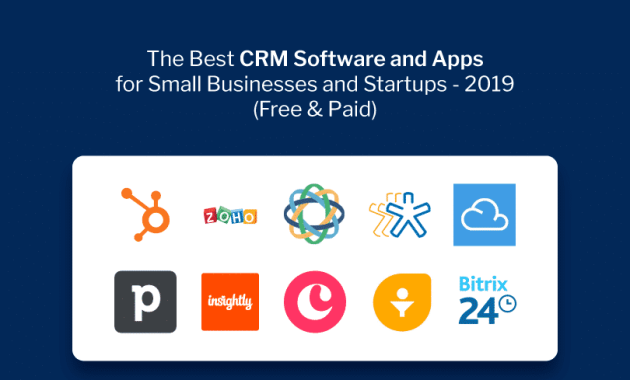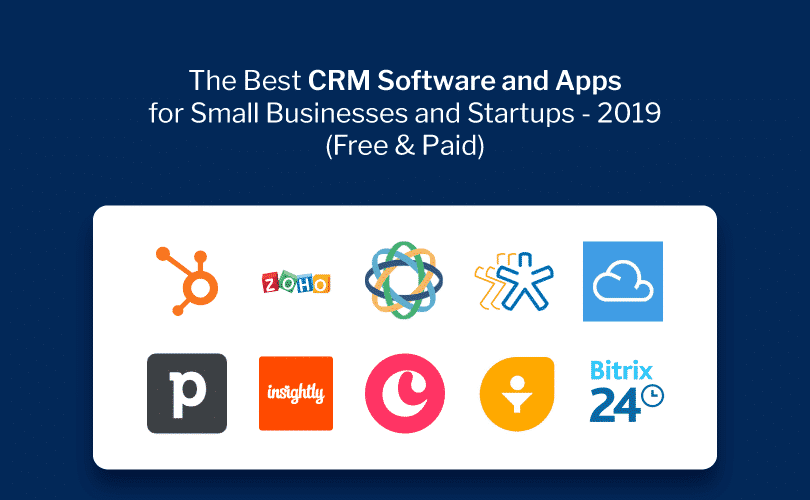
Steps to Simplify Productivity for Startups with CRM Software
Startups, the lifeblood of innovation and economic growth, face a relentless tide of challenges. Limited resources, fierce competition, and the constant need to adapt can make productivity a significant hurdle. However, in today’s digital landscape, Customer Relationship Management (CRM) software offers a powerful solution. This article delves into the practical steps to simplify productivity for startups using CRM software.
Understanding the Power of CRM for Startups
Before diving into the specifics, it’s crucial to understand how CRM software acts as a productivity catalyst. CRM systems centralize customer data, streamline communication, and automate repetitive tasks. This translates to significant time savings, reduced errors, and improved focus on core business activities. For startups, where every minute and dollar counts, CRM is not just a luxury but a necessity.
Step One: Defining Your CRM Needs
The journey to simplifying productivity with CRM begins with a clear understanding of your startup’s needs. Avoid the common pitfall of implementing a CRM system without a well-defined strategy. Start by asking critical questions:
- What are your primary goals for CRM? (e.g., lead generation, sales conversion, customer retention)
- What are your current pain points in managing customer interactions and data?
- What specific features are essential for your business? (e.g., sales automation, marketing integration, reporting dashboards)
- How many users will need access to the system?
Answering these questions helps you select the right CRM software and configure it effectively. Failing to define your needs can lead to wasted time, resources, and ultimately, a CRM system that doesn’t deliver the expected productivity gains. This step is crucial for making CRM a success for your startup.
Step Two: Choosing the Right CRM Software
The CRM market is vast, offering a range of solutions from basic contact management tools to comprehensive enterprise platforms. For startups, consider these factors when choosing CRM software:
- Scalability: Choose a CRM that can grow with your business.
- Ease of Use: Opt for an intuitive interface to minimize training time.
- Integration Capabilities: Ensure the CRM integrates with other tools.
- Pricing: Select a plan that fits your budget.
- Mobile Accessibility: Access data and manage tasks on the go.
Popular CRM options for startups include HubSpot CRM (free version available), Zoho CRM, and Pipedrive. These platforms offer a balance of features, ease of use, and affordability. Thorough research and, if possible, free trials are essential before making a decision. The right CRM software is a cornerstone of simplifying productivity for startups.
Step Three: Implementing the CRM System Correctly
Successful CRM implementation requires a structured approach. Follow these best practices:
- Data Migration: Transfer existing customer data accurately.
- User Training: Provide comprehensive training to all users.
- Customization: Tailor the system to your specific needs.
- Process Automation: Automate repetitive tasks to save time.
- Regular Monitoring: Track key metrics and make adjustments.
Data migration can be a complex process. Plan carefully and ensure data accuracy. User training is critical for adoption and maximizing the system’s benefits. Customization allows you to align the CRM with your unique workflows. Automation, such as automated email sequences, frees up valuable time. Consistent monitoring helps you identify areas for improvement and optimize the system’s performance. Proper implementation is key to using CRM to simplify productivity for startups.
Step Four: Leveraging CRM for Sales and Marketing
CRM software excels at streamlining sales and marketing efforts. Here’s how:
- Lead Management: Track and nurture leads effectively.
- Sales Automation: Automate sales tasks, such as follow-up emails.
- Marketing Automation: Segment your audience and personalize campaigns.
- Reporting and Analytics: Gain insights into sales and marketing performance.
CRM systems help you identify and prioritize high-potential leads. Sales automation streamlines the sales process, allowing your team to focus on closing deals. Marketing automation enables personalized communication, increasing engagement and conversion rates. Reporting and analytics provide valuable insights into what’s working and what’s not, enabling data-driven decision-making. Effectively using CRM for sales and marketing is a significant step in simplifying productivity for startups.
Step Five: Optimizing Customer Service with CRM
CRM software enhances customer service capabilities:
- Centralized Customer Data: Access customer information in one place.
- Ticket Management: Manage customer inquiries efficiently.
- Self-Service Portals: Empower customers with self-help resources.
- Feedback Collection: Gather customer feedback to improve services.
By providing a 360-degree view of each customer, CRM allows your team to deliver personalized and responsive support. Ticket management systems ensure that all inquiries are tracked and resolved promptly. Self-service portals, such as knowledge bases, empower customers to find answers themselves, reducing the workload on your support team. Customer feedback is invaluable for continuous improvement. Excellent customer service, facilitated by CRM, is vital for building brand loyalty and driving growth. This is another major step in simplifying productivity for startups.
Step Six: Integrating CRM with Other Tools
To maximize productivity, integrate your CRM with other essential tools:
- Email Marketing Software: Synchronize contacts and automate campaigns.
- Project Management Tools: Track projects and collaborate with teams.
- Accounting Software: Streamline invoicing and financial reporting.
- Social Media Platforms: Monitor social media interactions.
Integration eliminates data silos and streamlines workflows. For example, integrating your CRM with email marketing software allows you to send targeted campaigns. Integrating with project management tools improves collaboration and task management. Connecting with accounting software simplifies financial processes. Integrating with social media platforms helps you monitor brand mentions and engage with customers. Seamless integration is key to simplifying productivity for startups.
Step Seven: Analyzing and Refining Your CRM Strategy
CRM implementation is an ongoing process. Regularly analyze your CRM data and refine your strategy to ensure optimal performance. Key areas to monitor include:
- Sales Conversion Rates: Track the effectiveness of your sales efforts.
- Customer Retention Rates: Measure customer loyalty and satisfaction.
- Lead Generation Metrics: Evaluate the performance of your lead sources.
- Customer Service Metrics: Monitor response times and resolution rates.
Use the data to identify areas for improvement. Adjust your CRM configuration, workflows, and processes based on your findings. Regularly reviewing and refining your CRM strategy ensures that it continues to meet your evolving business needs. This is an important step in simplifying productivity for startups.
Conclusion: CRM, a Productivity Powerhouse for Startups
In the competitive landscape of startups, simplifying productivity is paramount. CRM software offers a powerful solution. By following the steps outlined in this article, startups can harness the full potential of CRM to streamline operations, improve customer relationships, and drive growth. From defining your needs to integrating your CRM with other tools, each step contributes to building a more efficient, customer-centric, and ultimately, successful business. CRM is more than just software; it’s a strategic investment in the future of your startup. Prioritizing these steps to simplify productivity for startups is a must.
[See also: How to Choose the Right CRM for Your Business]
[See also: CRM Automation: Maximizing Efficiency in Your Startup]
[See also: CRM Reporting and Analytics: Making Data-Driven Decisions]

